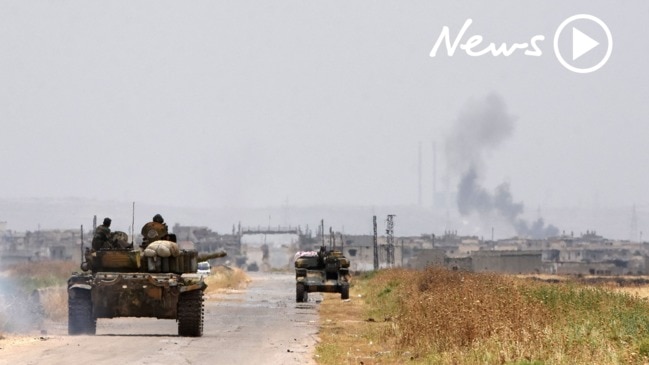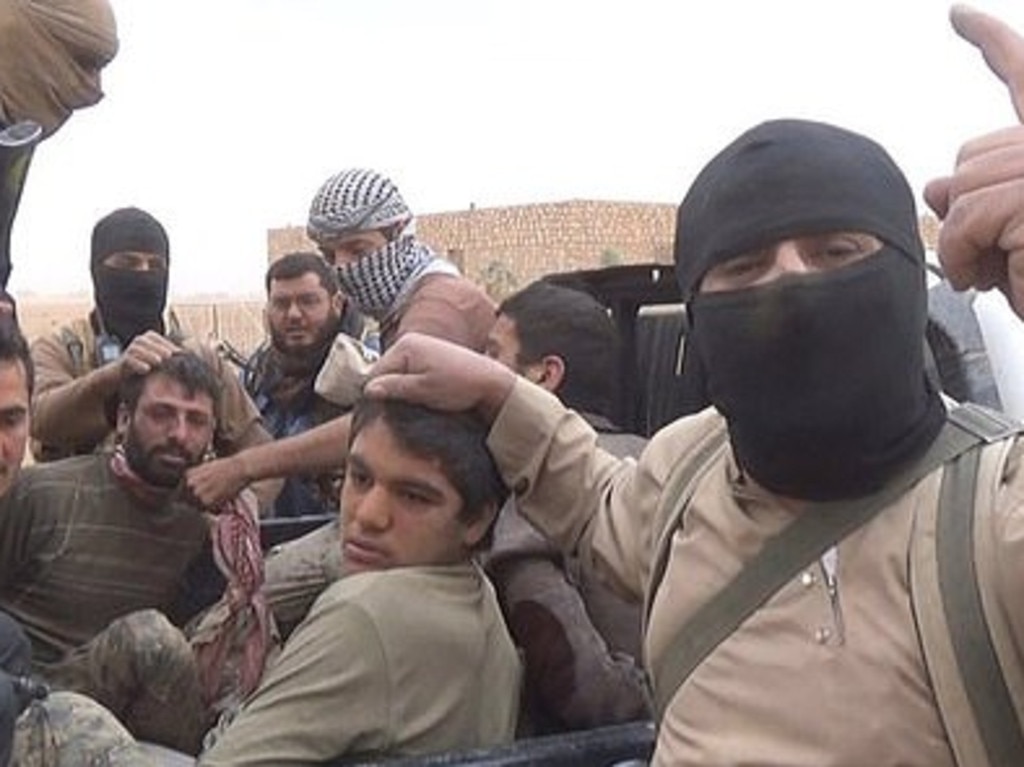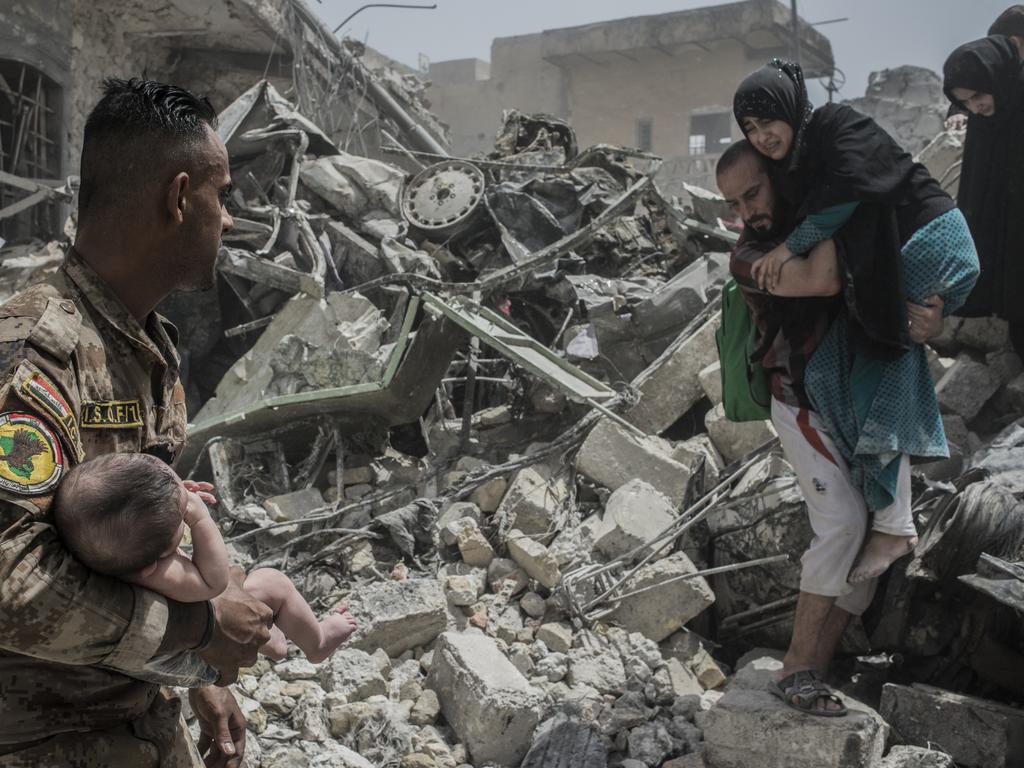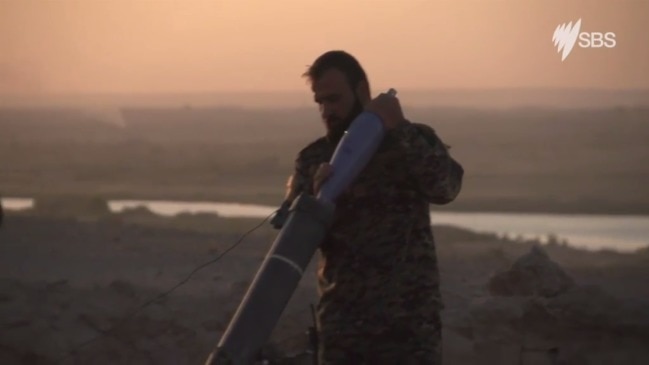Violent reminder IS won’t go
ON TUESDAY, Donald Trump made a bold declaration, declaring victory. Only two days later, that lie was proven deadly wrong.

“WE’VE defeated ISIS.”
That’s what US President Donald Trump said on Tuesday.
But fast forward to today and we hear reports that far from being defeated, Islamic State has this week captured 700 hostages and says it will kill 10 of them a day unless the group’s demands are met.
It’s understood that members of IS attacked a refugee camp last week, leading to the hostages being taken. Among them are Europeans and US citizens.
It’s estimated that 5000 IS fighters are holed up in the city of Hajin in eastern Syria, near where the hostages are believed to be held. It’s thought that top IS leaders could be among the bloodthirsty fighters in the city.
It’s a chilling image and one can only imagine the fear of the hostages who are being held.
Does this sound like a group that has been defeated?
Whatever the US President says, if IS is capable of this, the group is a long way from being wiped out. In fact, it’s quite the opposite.

This development is a reminder that the terrorist group and those who sympathise with it remain an intelligence and security threat not only in the battlegrounds of Syria and Iraq, but around the world — right here in Australia as well.
IS emerged as a militant group that rose in notoriety in 2014 after taking control of key territories in Iraq and Syria. A goal of the group was to establish itself as a caliphate and it referred to itself as the Islamic State. Internationally though, IS was designated as a terrorist organisation by the UN and many of its members. Although the group became more prominent over the past five years, its roots date back two decades. Membership grew in numbers as part of an insurgency after the Iraq War in 2003.
Ironically this was another conflict where “mission accomplished” might also have been claimed a little prematurely.
MORE: ‘We’ll kill 10 hostages a day’
President Trump, is among several world leaders who have claimed victory over IS. Even the Iraqi Prime Minister declared final victory a year or so ago.
Their doing so has given us a false confidence that the threat of the group, which made international headlines with its sickening videos of beheadings, executions and takeover of vast tracts of land in Iraq and Syria, is over.
Of course, there is some truth that the group has been weakened over the past 18 months. A year ago, Raqqa, the so-called capital of the caliphate, was taken back from IS.
Major cities like Mosul also came under the control of US-backed forces. But though the territory held by the group may have diminished, the loyalties of those sympathetic to it have not.

With the weakening of the caliphate, the fear was that jihadis who had travelled to the battleground to join IS would now flee to their home countries to wreak havoc. That’s certainly still a threat, but the news of 700 hostages being taken this week shows that while the group may be weakened in the Middle East, it remains capable of extraordinary violence there as well.
The solution to the issue of growth of jihadi groups is a complex one. It’s far more complex than bombing them into submission, a tactic that in the near 20-year war on terror has failed to deliver a definitive blow.
Bradford University professor of peace studies Paul Rogers has previously written of the fight against IS, that “military responses may seem to work in the short term but don’t change much”.
According to Prof Rogers, the only genuine means of dealing with groups like IS and al-Qaeda is “addressing the underlying socio-economic and environmental factors that are so helpful to these movements”.
“This is not a message that Western elites want to hear and so the wars will go on.”
And of course, while the wars go on, the danger of the ongoing existential threat of IS is not just that it may expand its territory once again in the Middle East. The additional concern is that those battleground victories might embolden its supporters around the world, including those who have returned to their countries of origin.
Britain and nations in Europe know all too well the horrific impact of IS-inspired attacks.
In Australia, we’ve also had violence, and threats of it, visited upon us too. Thanks to our intelligence, security and police forces, many planned attacks have been thwarted.
Among all of this, the bottom line is that IS isn’t defeated. It’s active and remains a threat. It may expand and contract over time, but its existence and defeat is more complicated than a battlefield war that can be won or lost. This is not a territorial war, but an ideological one.
Chris Urquhart is a contributor to news.com.au. Follow him on Twitter: @chrisurquhart




